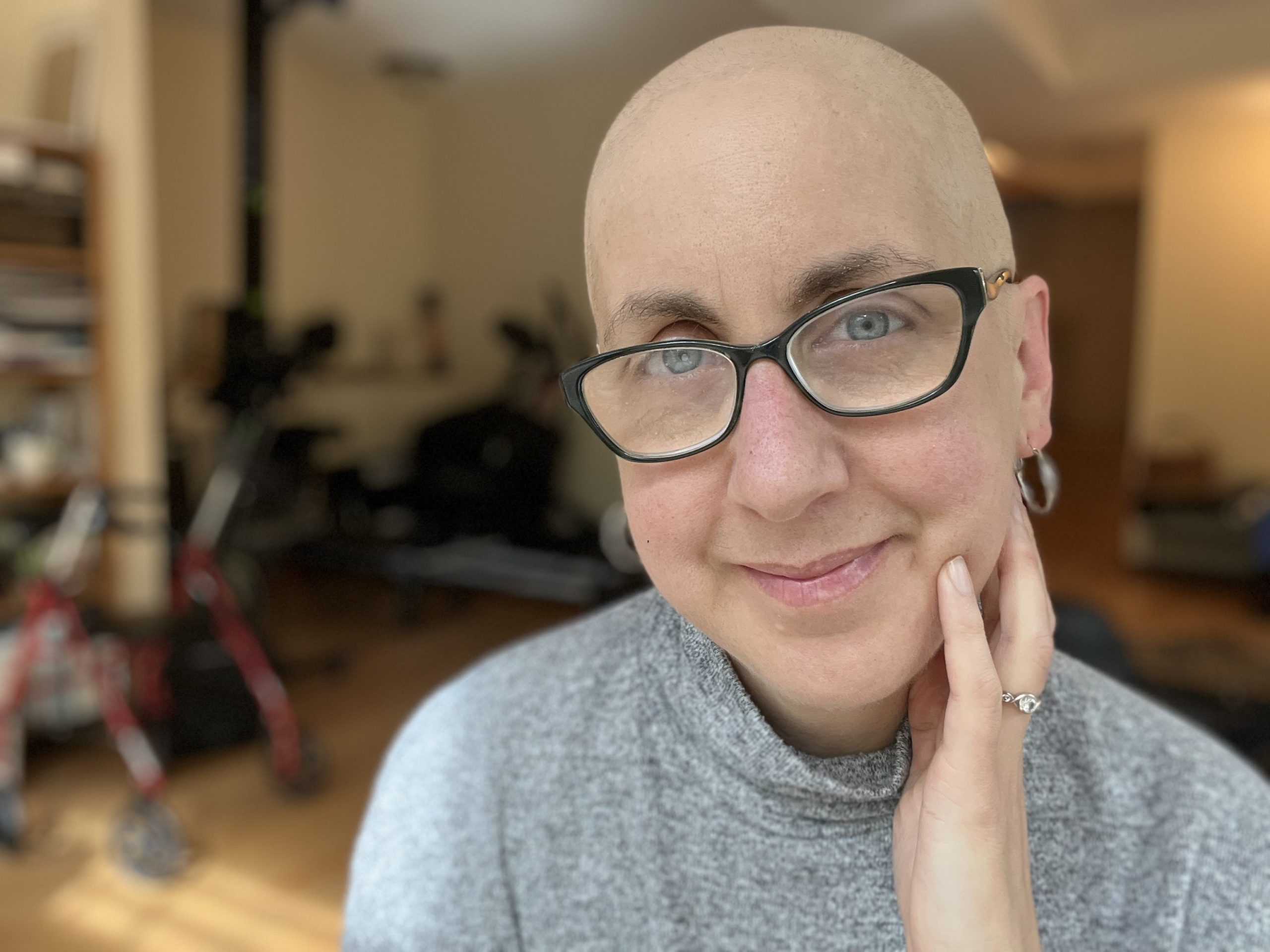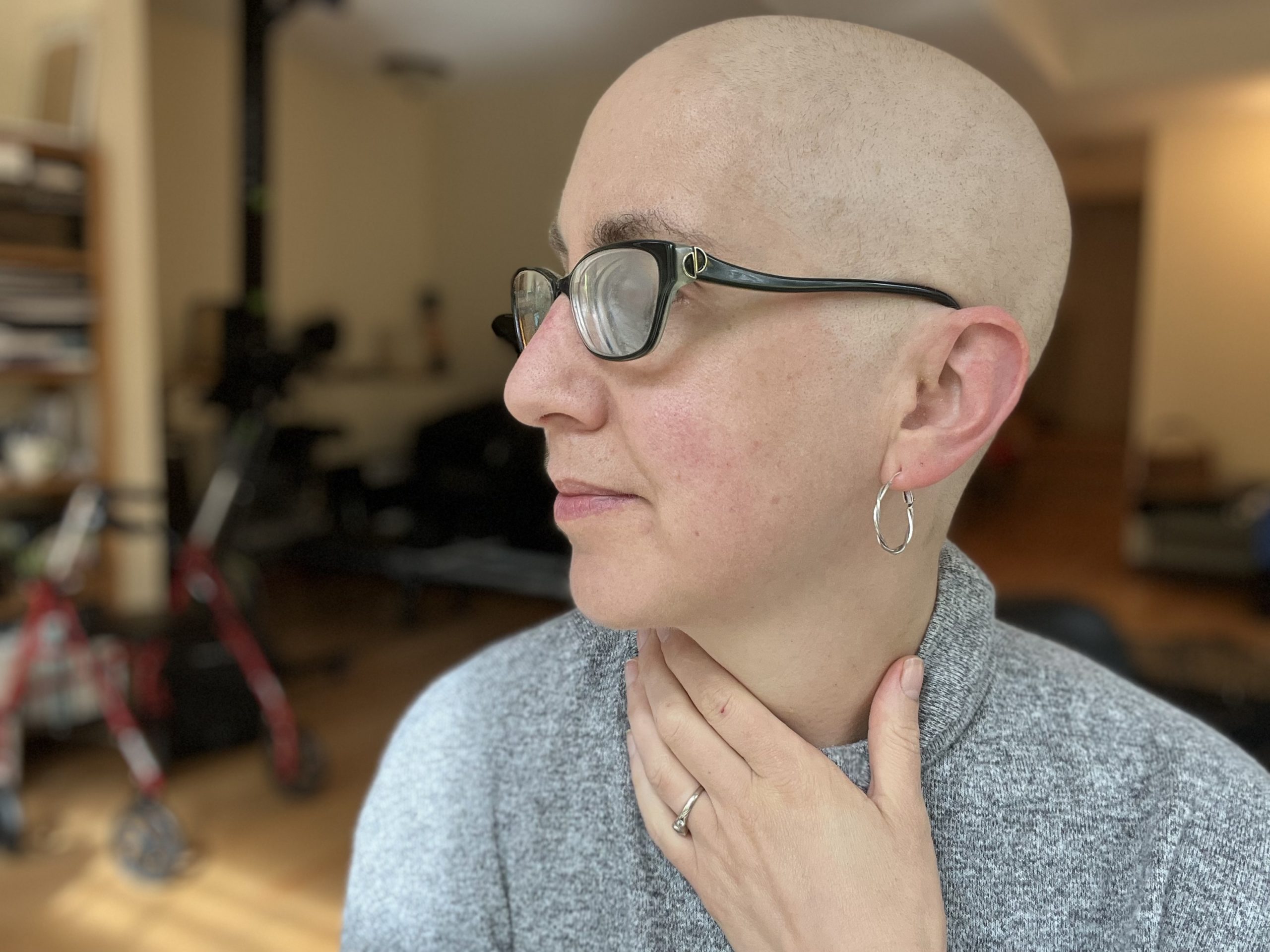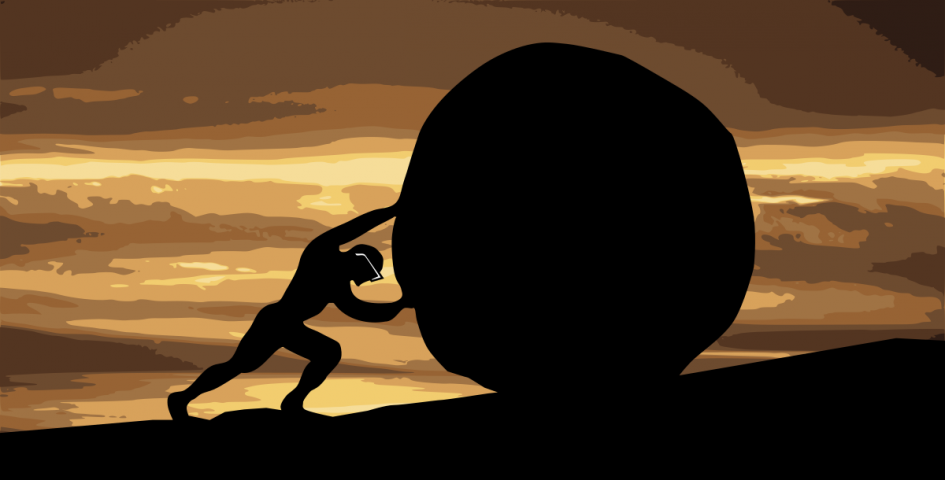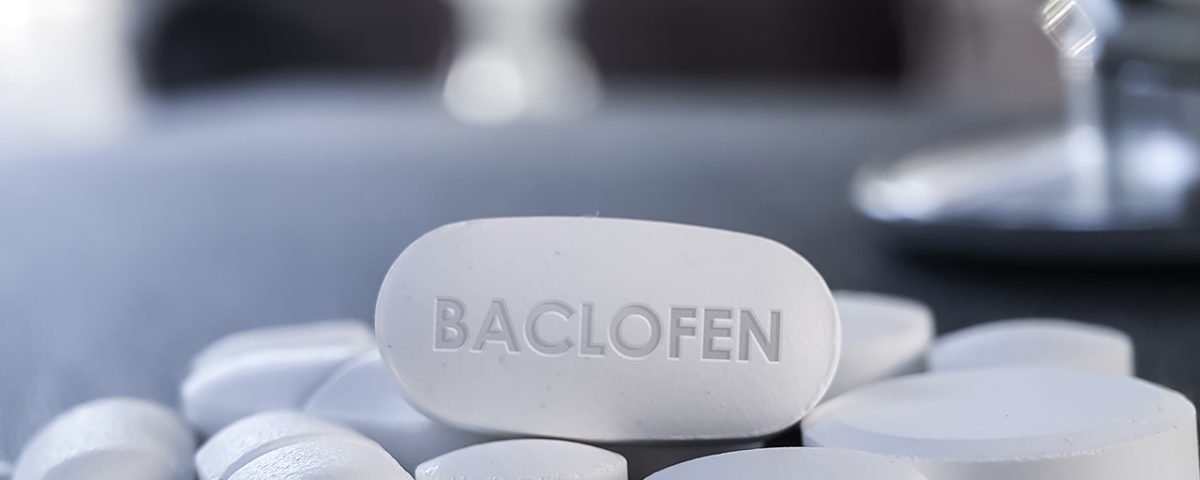
Last Saturday was exactly 2 months since I returned home. My treatment cohort gathered for our monthly zoom to catch up on how everyone is doing post treatment, which for the most part is really well. We agree that we are done with the Groundhog Day life that is our current isolation and hyper immune protection posture. And everyone is craving salad.
I have continued my process of weaning off baclofen since my post two weeks ago. There have been rough days in these last few weeks; intense moments of rebound spasticity, usually in the evenings, and a lot of big mood swings. I am currently at 15 mg per day, down from 60 mg per day.
I have been experimenting with different strains, doses, and timing of edible cannabis to reduce spasticity and over the last couple of days I seem to have gotten it dialed in. My research pointed me to any product that has a 1:1 ratio of THC to CBD. I have found a couple of RSO (Rick Simpson oil) strains that work, “sour tsunami” and “critical mass”. I have also had luck with an RSO strain called “Milky Way” which is very high in CBG and only a small amount of THC. Oddly, this strain makes me feel the most “high” so I use it less. 1:1 gummies, half of one every 2.5-3 hours, are also a winner.
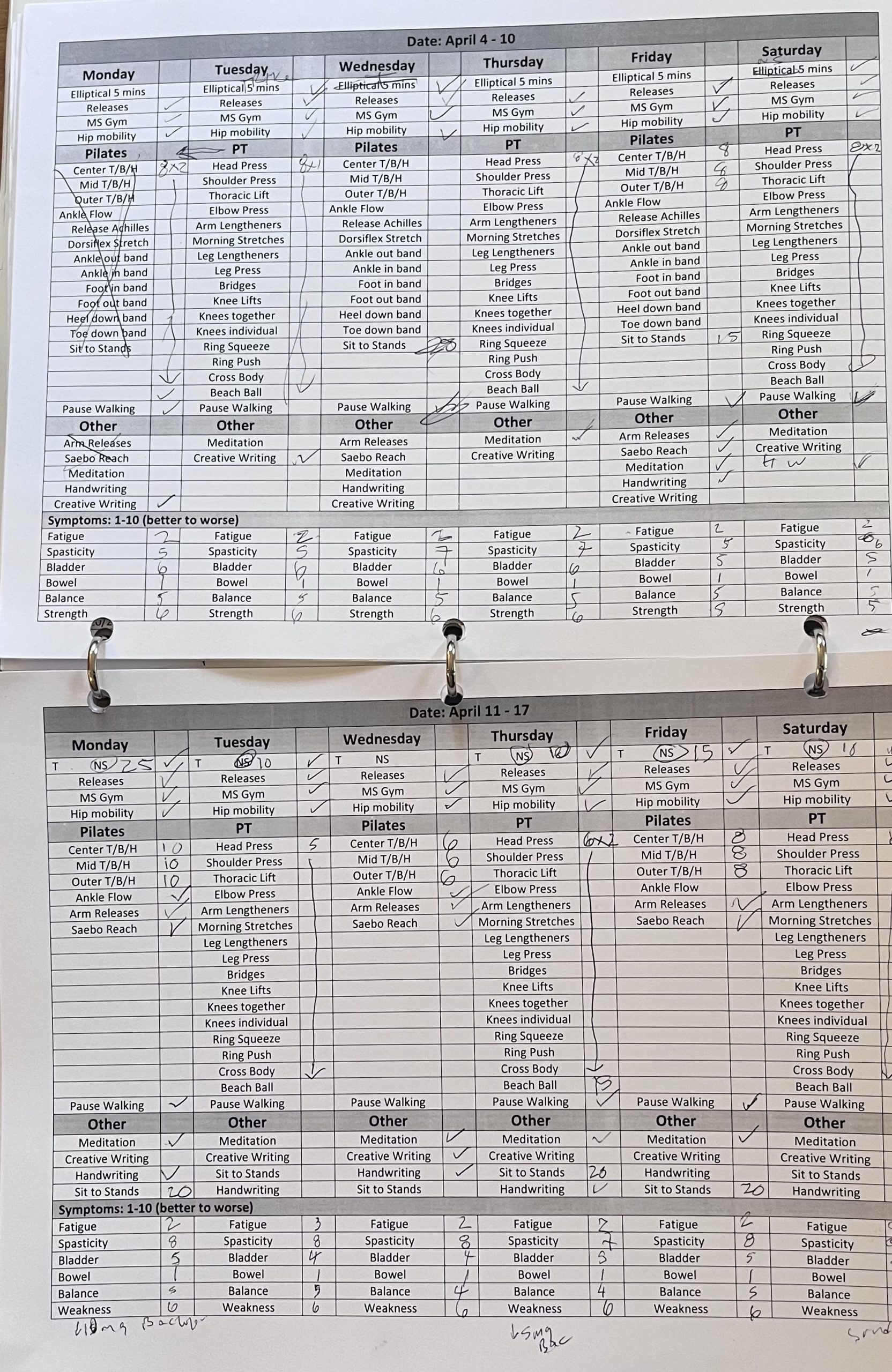
My day-to-day routine of physical therapy, occupational therapy, MSGym, and meditation is ongoing and I’ve remained consistent. I feel like I’m dialing it in over time, and I plan to meet with my physical therapist next month to refine the plan.
If I had written this post three days ago, as I intended, I would’ve been writing about darkness and struggle. The last couple of days seem to have found a balance, both physically and emotionally, leaving me more connected to a hopeful and strong recovery. The darkness and struggle will likely return with the next baclofen dosage drop, but I now understand it better and can ride it out more easily.
Mobility/Walking/Legs
My mobility/walking/legs have been all over the place this last month. With weaning off baclofen, I’ve experienced some of the most intense spasticity occurrences I’ve ever had. Many nights my right leg spasticity will pull in opposing directions. My leg will involuntarily pull up into a full marching step at the same time it is doing everything it possibly can to stay straight. The pulling up wins, but it feels like it’s causing a little bit of damage in the process.
When my spasticity is strong walking is almost impossible and it can feel like backward progress. As I’ve gotten better at getting spasticity under control with cannabis, I am beginning to feel the growing and strengthening capacity and competence of my legs. As I’ve tapered off baclofen, I’ve had moments of feeling viscerally connected to my legs in a very functional way and they seem more able to take in information and gain strength, like they were returned to me and I didn’t even know they had been lost.
I took a video of my walking a couple of days ago when my walking felt spastic and stiff and I decided to make a video again today to reflect how much stronger it has been feeling. Fluctuations are going to be something I have to get used to, there are going to be rough days and days where I feel strong and I cannot get attached to either.
Hip pain is the other ongoing issue I want to track in this section. I have a lot of pain in my hips. I’ve had sharp pain down my left lateral hamstring for close to 10 years and more recently of lot of hip pain in the sacral area wrapping around the outside of the hip joints. I have seen a cacophony of specialists to try and resolve this. Imaging doesn’t show any structural problems. The conclusion of everyone I’ve seen so far believes it to be muscle/tendon/ligament pain. Locked up, frozen hip structures is incredibly common with MS when legs and walking are impacted. As I do more physical therapy exercises to get my hip joints and hip mechanism working again, the more pain I’ve developed. Sometimes I think it is the pain one goes through when beginning to use muscles that have not been working for a long time. With this belief system my logic is that the stronger I get the more the pain will dissipate. And that may be true. Other times I think it is the pain of something that is torn or broken, and nobody has found it yet. With this belief system I worry that I’m doing more damage than good.
If this truly is something that will dissipate as I get stronger, that doesn’t mean it will be fast and I would love to find a way to do both, get stronger/keep moving/ make my hips work and decrease pain while doing that. Pain and gaining strength don’t work well together.
Arm/Hand/Writing
This is an area where I have put less than ideal attention. I don’t do my arm exercises as often as would be beneficial, though I am doing the more that I had been, so it’s a start.
I’ve been trying to teach my right hand how to be a competent hand writer again. I decided to try a method of learning a specific “font” where I work by tracing and then practicing – a very humbling process. I would say as far as this month goes that I am holding steady on hand/arm function. Can’t tell that I’ve gained any meaningful ground, but I also don’t feel like I’ve lost any. As a side note, I’ve also been trying to play ukulele. Surprisingly I am finding this very fun even though I suck and will likely suck for a very long time.
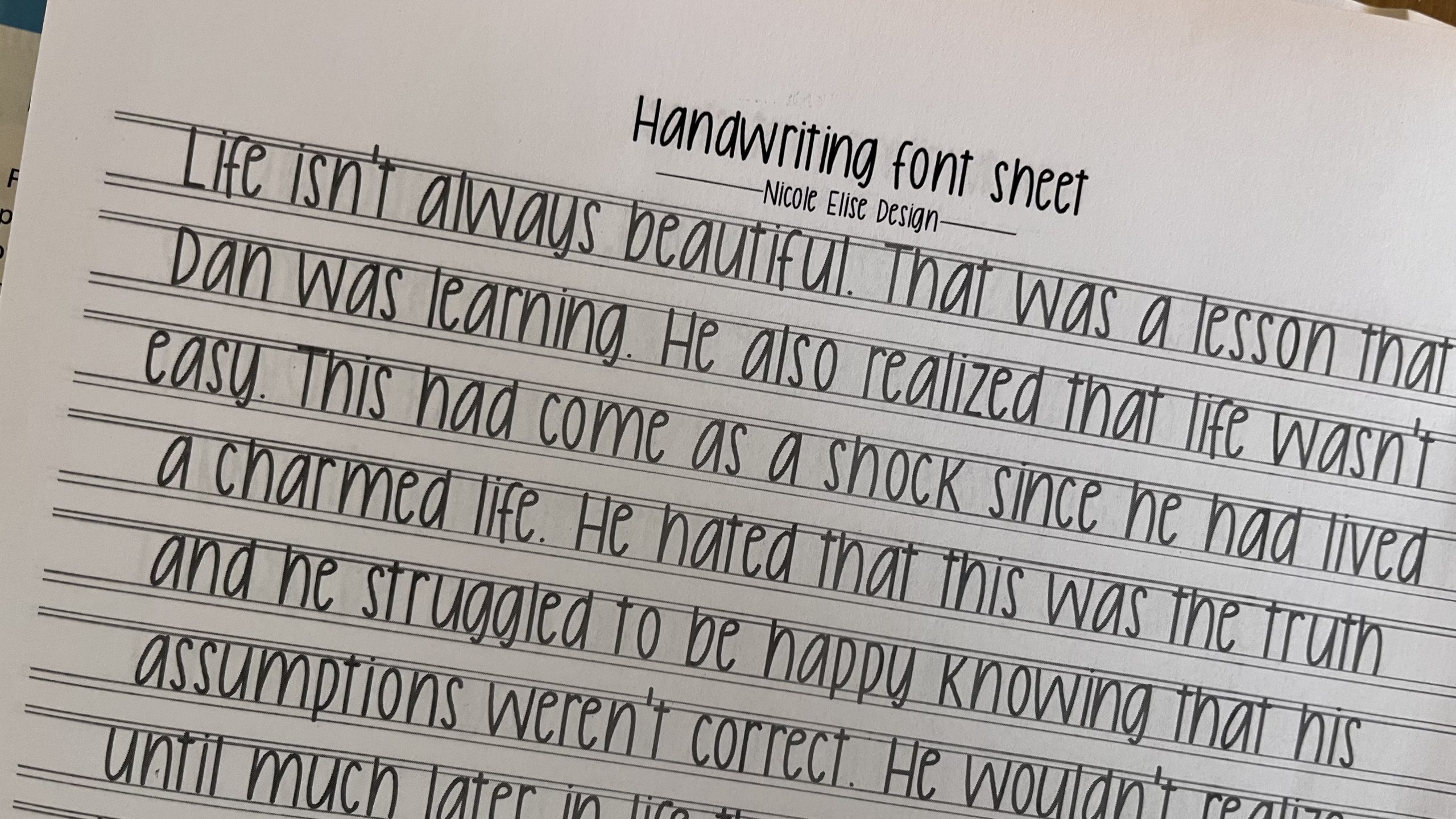
Fatigue/Energy
I continue to be MS fatigue free. I get tired and I run out of leg endurance for movement/walking/exercise, but I am not completely wiped out before I even start the day. This is a huge win and continues to inspire me to believe that healing is possible. If treatment had an impact here, I have to believe it made a bigger difference than that.
Bladder
Pretty stable here as well. I have a neurologist appointment set up for the beginning of May where I hope I will have more clear answers. As I mentioned before, the retention side of my bladder issues continues to not be an issue anymore. I still have urgency and frequency, but I now know that my bladder and peacefully which reduces the risk for urinary tract actions, a really big deal. I continue to track daily to see if there’s any pattern or change.

Bowel Function
Another win. At this point, bowel function is totally normal, no issues.
Hair Growth
Hair has been stubborn to start its rebirth. About a week ago we did another shave as the first growth tends to be pretty weird and patchy. We may decide to shave it one more time to help the new growth be as thick and plush as possible, will see with this growth does before we decide. For now, I’m still bald.
